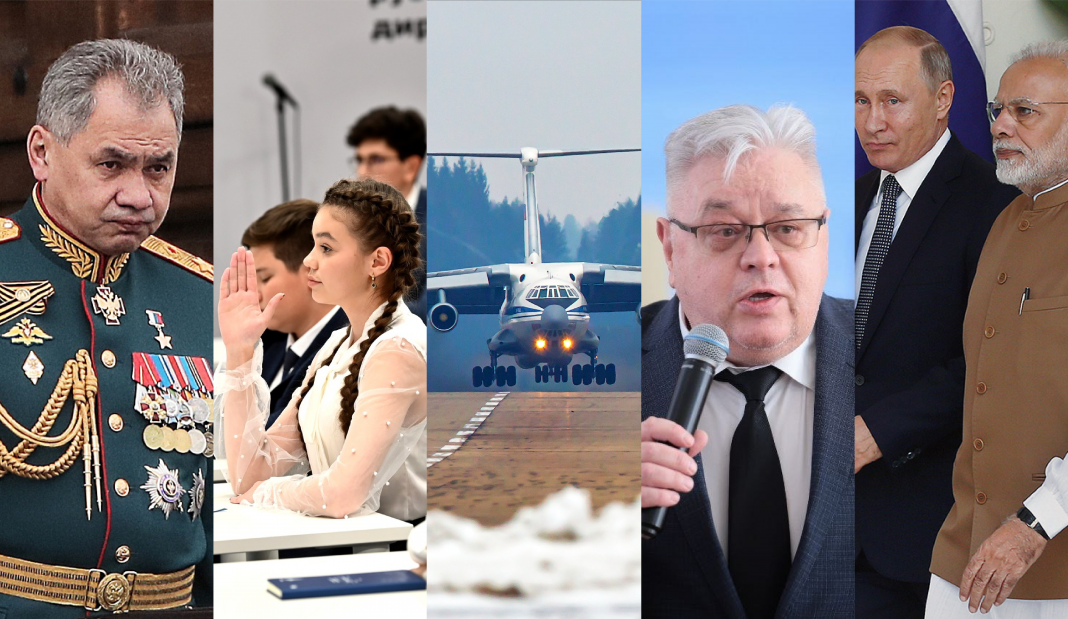This report describes the key events that significantly impacted Russia’s political, economic and social processes.
Based on the results of the past week, the following trends can be summarised:
- For Vladimir Putin, developing relations with India is of paramount importance. In the complex chain of international events of recent years, India is the force that allows Russia to balance its relations with China without falling completely under Chinese influence. Russia is using the rather complicated relationship between Beijing and New Delhi to the fullest.
- By his public statements, Putin makes it clear that Russia does not abandon the old concepts of the “Russian World”, which were based on the ideas of a shared history, a single language space and a single concept of the feat of the Soviet people in the Great Patriotic War. His election campaign will be based on such theses.
- Sergei Shoigu’s visit to the PRC demonstrates that lately, he has regained his political position and become a profitable mediator for all influence groups in Putin’s entourage. Not so long ago, Shoigu officially visited North Korea, now China. Shoigu has developed close partnerships with Sergei Chemezov’s Rostec and completely eliminated contradictions with the all-powerful Kovalchuk-Kiriyenko group. This allows Shoigu to represent interests in the external direction of the entire Russian military-industrial complex.
This digest examines the following issues that were most relevant for Russia during 28th of August – 03rd of September:
1. Telephone conversation between Vladimir Putin and Indian Prime Minister Narendra Modi;
2. Vladimir Putin’s participation in the open lesson “Talks about the important”;
3. Attack on the Pskov airfield;
4. “Secret visit” of Sergei Shoigu to China;
5. Article by Valery Garbuzov on Russia’s foreign policy.
This Content Is Only For Subscribers
- Telephone conversation between Vladimir Putin and Indian Prime Minister Narendra Modi
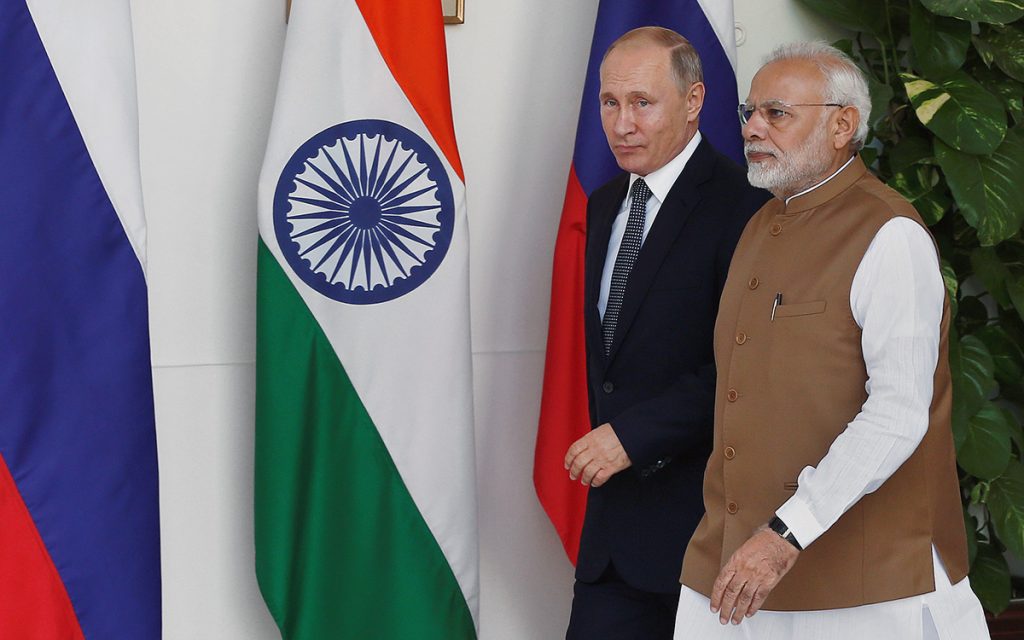
On Monday, August 28, Vladimir Putin spoke with the Prime Minister of the Republic of India, Narendra Modi. The parties exchanged views on the recently completed BRICS summit, which was held in Johannesburg on August 22-24. Also, they discussed plans for further expansion of the organisation. It is noted that during the conversation, issues of bilateral relations between India and Russia were also raised. Also, Putin once again congratulated Narendra Modi on the successful landing of the Indian space station Chandrayaan-3 on the moon in the region of its south pole and confirmed his readiness for further development of bilateral cooperation in the space sector.
It is noteworthy that a few days before the telephone conversation between Putin and Modi, the press secretary of the Russian president officially announced that Putin would not go to the G20 summit in New Delhi. Foreign Minister Sergei Lavrov would head the Russian delegation.
Outcomes and outlook:
For Vladimir Putin, developing relations with India is of paramount importance. In the complex chain of international events of recent years, India is the force that allows Russia to balance its relations with China without falling completely under Chinese influence. Russia is using the rather complicated relationship between Beijing and New Delhi to the fullest.
In addition, India is the largest consumer of Russian energy resources, primarily oil. India is also a possible mediator in contact with the West. Unlike many BRICS states, India does not go into confrontation with the US and its allies.
That Putin’s phone call to Narendra Modi took place on the eve of the G20 summit in New Delhi and shortly after the conclusion of the BRICS summit is a natural political move. However, the real tone and themes of the issues raised can only be judged by the results of the following practical steps. So far, it looks like a “dialogue of politeness”, and it can be assumed that neither a deterioration in relations between Russia and India nor breakthrough steps towards each other will follow this call.
- Vladimir Putin’s participation in the open lesson “Talks about the important”
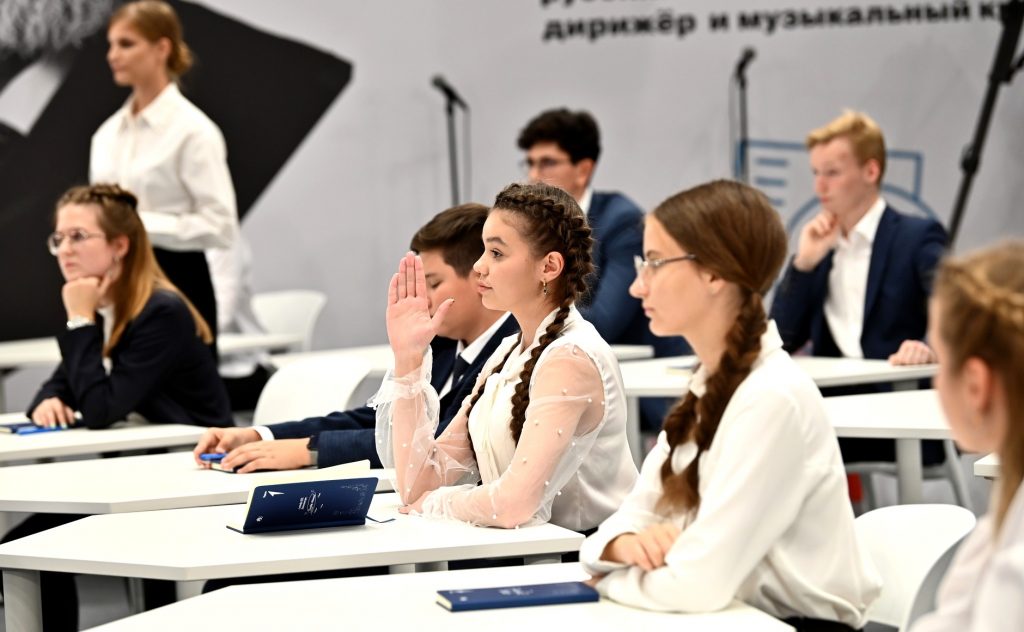
On Friday, September 1, Vladimir Putin held an open lesson, “Talk about the Important,” within the framework of the projects of the Ministry of Education, the Federal Youth Agency and the Russia – Land of Opportunities platform. The lesson was attended by 30 schoolchildren with outstanding academic achievements, winners of international olympiads and competitions. Notably, during the open lesson, Vladimir Putin dispensed with his usual lectures on the history of Russia with fair distortions and interpretations. He devoted the main part of the lecture to answering questions from schoolchildren.
Putin also visited the new educational campus of the Senezh Management Workshop called Agora. The complex itself was created in 2019 and specialised in training management personnel for federal and regional authorities. He told schoolchildren about this complex, as an example of an educational cluster, during the introductory part of an open lesson.
Key theses:
- “The President of Kyrgyzstan and I have now begun the process of building three schools with the teaching of the Russian language, or, more precisely, with the teaching of all subjects in Russian in Kyrgyzstan.”
- “Firstly, my grandfather is a peasant; he lived in a village in the Tver province, here, side by side. Do you know what I noticed? First, he refers to his son as “you”, and his son also refers to his father as “you”. Here’s what I thought. This is a simple village man – he wrote something with errors. But what an inner deep culture our people had! It is amazing”.
- “By the way, when I read, as it were, a grandfather’s order to his son, I understood why we won the Great Patriotic War. It is impossible to defeat such a people with such a mindset. We were absolutely unbeatable, and now we are. An extremely important thing.”
- “I worked in a construction team and was awarded the qualification “carpenter of the fourth category”. I’m still proud of it. Although I did not become a carpenter of the fifth or sixth category, as you can see, my fate was different, but I remember this and speak about it with pleasure because I learned to do something with my own hands, and this is important.
- “Recently, former French President Nicolas Sarkozy published an article about the world’s future development. I largely agree with him. He says that soon, until 2030, two and a half billion people will already live in Africa, and only 450 or 430 [million] in Europe, something like that. And Asia? There are 1.5 billion people in China, 1.5 billion people in India, and 300 million in Indonesia. That is, these are objective processes; they are not even connected with the current world or foreign policy situation, although they contribute to the realities of today’s life, but these are objective processes. And these are very serious things. By the way, we have long been paying increased attention to developing our relations with Asian countries, I repeat, not even in connection with today’s events. We are naturally doing this because, taking into account the pace of development of Asia and Asian countries, the centre of economic and, as always, the centre of political life will gradually shift to these regions.”
- “Nanotechnologies are, in my opinion, billionths of particles from a meter. People are already considering the need to use these nanoparticles as trillionths of a meter gradually. I’m afraid to seem ridiculous, but nevertheless, the microcosm is as endless and boundless as space, which is impressive.”
- “Soon enough, we will have events, and the meeting will be with the Chairman of the People’s Republic of China; he calls me his friend; I am pleased to call him my friend because he is a person who does a lot, personally does for the development of Russian-Chinese relations and connections, and in a variety of areas.
Outcomes and outlook:
Putin, in fact, has already joined the presidential campaign. In this situation, we are dealing with the usual PR event, the reason for which was September 1 – Knowledge Day. However, there are several points in Putin’s speech.
Firstly, he clarifies that Russia does not abandon the old concepts of the “Russian World”, which were based on the concepts of a shared history, a single linguistic space and a single concept of the feat of the Soviet people in the Great Patriotic War.
Second, Putin re-emphasised the distancing from Europe and the desire to focus on the Russian presence in Asia and Africa. As if two contradictory directions, in fact, reveal the essence of Putin’s new doctrine: the main interests for Russian expansionism are Asia and Africa, and the post-Soviet space is Russia’s sphere of unconditional influence (as it sees it for itself).
The announced meeting between Putin and Xi Jinping is another signal that Moscow and Beijing have a complete understanding of political issues.
- Attack on the Pskov airfield
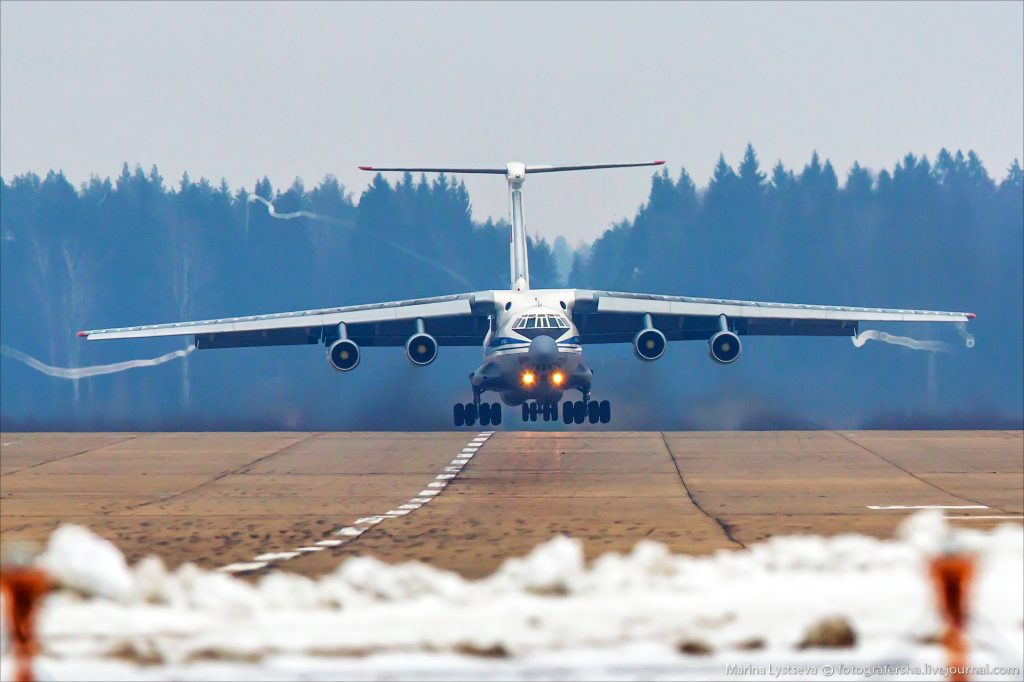
On Wednesday, August 30, UAVs attacked the territory of military units and strategic facilities in several Russian regions. At the same time, the UAV attack on the military airfield in Pskov, where Il-76 military transport aircraft are based, became the most resonant event. According to several sources, as a result of the attack, two Il-76 aircraft were destroyed, and about four more aircraft were damaged.
At the same time, many observers were surprised that the airfield is located quite far from the border of Ukraine (more than 700 kilometres). A few hours later, Russian Telegram channels began to disseminate information that the UAVs were launched from the territory of Estonia (borders on the Pskov region). Later, Russian propagandists publicly accused NATO countries of attacking Russian territory. However, no evidence was provided.
Notably, on September 1, President of Ukraine Volodymyr Zelensky officially announced that a successful test of UAVs with a range of more than 700 kilometres had taken place in Ukraine. This statement was the reason for another resonance among Russian Telegram channels. However, on the same day, the head of the Main Intelligence Directorate of the Ministry of Defense of Ukraine, Kirill Budanov, said that the airfield in Pskov was attacked from the territory of Russia. A video was also published showing that explosives were dropped from small drones to attack the airfield, which confirms Budanov’s words.
Outcomes and outlook:
Russia has recently demonstrated the vulnerability of some facilities on its territory and its unpreparedness for guerrilla warfare on its territory. It is clear that the statements that Ukrainian drones travelled 700 km before reaching Pskov, as well as the version that they arrived from Latvia or Estonia, are a bluff (in the second case, a bluff, the task of which is to cast a shadow on NATO member states, who could be involved in the operation.
Most likely, drones were launched from Russian territory. In this regard, many questions may arise for the military, who cannot prevent attacks by unmanned aerial vehicles, and for the Federal Security Service. It is quite possible that the number of unprecedented UAV attacks may result in personnel reshuffles in Russian law enforcement agencies shortly.
- “Secret visit” of Sergei Shoigu to China
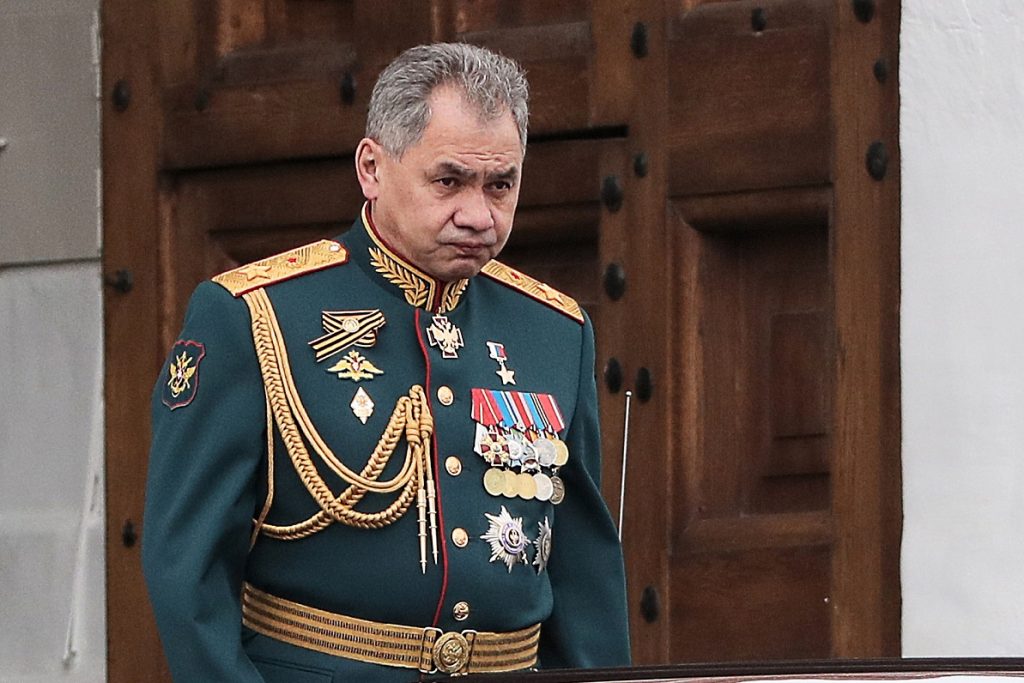
Some analysts noted that in the second half of August, Russian Defense Minister Sergei Shoigu completely disappeared from the public plane for some time. Many attributed this to the holiday season ahead of the new political season. However, several Ascolta sources noted at once that at that time, Shoigu was visiting China on an unofficial visit, during which he held negotiations on expanding the production of combat UAVs.
It is important to note that if the information about the trip is indeed confirmed, then Shoigu’s visit took place immediately after the end of the Army-2023 forum in Moscow, where the Chinese delegation showed particular interest in developing UAVs.
Outcomes and outlook:
Sergei Shoigu’s visit to the People’s Republic of China could precede Vladimir Putin’s future visit to Beijing, most likely expected in the second half of September – early October 2023. The fact that Shoigu was sent on such an important mission to Beijing may indicate that he has fully resumed his influence on political processes in Russia (especially after the June “rebellion” of the Wagner PMC).
Not so long ago, Shoigu officially visited North Korea, now China. Shoigu has developed close partnerships with Sergei Chemezov’s Rostec and completely eliminated contradictions with the all-powerful Kovalchuk-Kiriyenko group. This allows Shoigu to represent interests in the external direction of the entire Russian military-industrial complex.
Ascolta’s sources say that during the visit, some issues of military-technical cooperation between Russia and China were considered, which, for obvious reasons, are not advertised publicly. If so, the Russian defence machine may soon receive serious replenishment from the outside.
- Article by Valery Garbuzov on Russia’s foreign policy
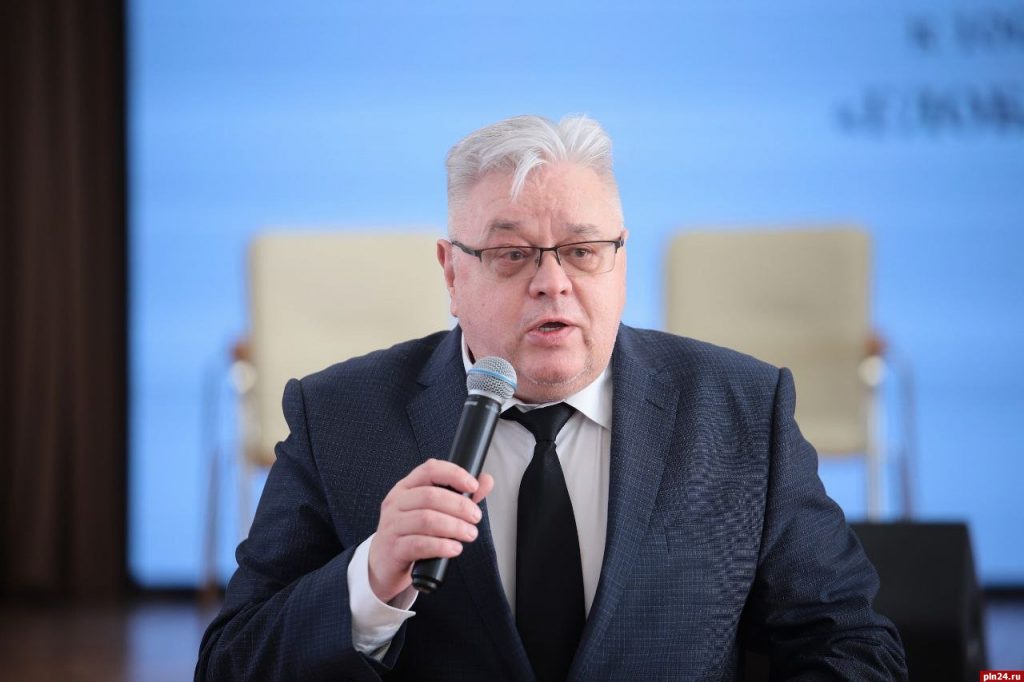
On Tuesday, August 29, Valery Garbuzov, director of the Institute for the US and Canadian Studies of the Russian Academy of Sciences (ISKRAN), published an article in the opposition newspaper Nezavisimaya Gazeta entitled: “Knowledge, not myths, is necessary for self-knowledge of Russia.” In it, the author criticised Russian pro-government propaganda and foreign policy imperial ambitions of Russia. At the same time, on September 1, Garbuzov was fired from the post of director of ISKRAN and succumbed to harsh criticism from several Russian propagandists.
Key theses:
- “The passing era takes away a lot: illusions and hopes die, myths are destroyed, a new reality appears, and the living environment changes. Forgetting what lived for generations.
- “It’s no secret that the charge of foreign policy expansionism has never left Russia, pursuing it throughout its historical development. It was he who became one of the engines of the formation of the Russian state.”
- “This trend manifested itself during the years of the existence of the early feudal Old Russian state of Kievan Rus in the 9th–12th centuries, and during the specific period of feudal strife in the 12th–15th centuries, and during the time of the Moscow centralised state of the 15th–18th centuries, and after the formation of the Russian Empire in 1721 when Eurasian continental expansionism became the focus of Russia’s often aggressive foreign policy activity, which turned it into the world’s largest power by the beginning of the 20th century.
- “The state propaganda of the USSR in the 1960s–1970s was built around several focuses that formed the Soviet foreign policy mythology. One of them was the thesis of American imperialism taking over the entire globe and preventing the rest of the world from moving towards a bright communist future. The fact that the foreign policy of the USSR during the Cold War was its mirror image today, few people doubt.
- “The aggravation of the contradictions of imperialism, the collapse of its colonial system, the intensification of political reaction, the deep crisis of bourgeois politics and ideology were declared symptoms of the “general crisis of capitalism” that had engulfed Western society. This utopian theory has existed for decades, spreading throughout the USSR and the countries of socialism, never being questioned.”
- “Today, in the wake of anti-Western sentiments in an atmosphere of pseudo-patriotic frenzy that has gripped the population of Russia, which regularly listens to “old songs about the main thing”, which with amazing ease, naively and thoughtlessly perceives the theses of total state propaganda, new myths are being created, and with them the modern utopian consciousness”.
- “Under the conditions of the creeping restoration of Stalinism, their efforts are introducing new dogmas – about the crisis of globalisation and the entire “Anglo-Saxon” world (what would that mean in the 21st century?), about a new anti-colonial revolution (there are only 17 colonies left in the world!), about the loss of American dominance (and this after the collapse of the USSR?), about the great world anti-American revolution, about the decline of the West in general (the second coming of the “general crisis of capitalism”?!)”.
- “The dominance of the USA is an objective, permanent factor that began the process of its formation from the beginning of the 20th century and existed (to the deep sadness of modern domestic pseudo-patriots) to this day. True, the scale of this factor, as well as the nature and forms of its manifestation, have evolved.
- “The US is a nuclear superpower that maintains global leadership in areas such as the global economy, finance, military, innovation, direct investment, and culture. They still retain their attractiveness, as evidenced by the inexhaustible mass flows of immigrants from all continents. Approximately 1 million people arrive in the US every year.
- “Any attempts to cobble together a new anti-American coalition on a global scale (stubbornly undertaken today by the Russian authorities, seized by the desire to “return the lost”) are unlikely to lead to success. The interests of most states of the world are too integrated into the American ones, forming a strategic interdependence between them and thereby deterring any aggressive anti-Americanism.
- “The fact that Russia today has a pronounced post-imperial syndrome is more of a tragic pattern than a historical anomaly. Its peculiarity is that it did not appear immediately after the collapse of the USSR in 1991 but made itself felt much later, with Putin coming to power. After more than 30 years, the delayed syndrome, the possible origin of which was not previously given much importance, has become threatening.”
- “Trying to rally around itself on an anti-Western platform the former colonial and oppressed peoples of the countries of Asia, Africa and Latin America, involving them in the struggle against the countries of the “golden billion” that has been pushing its world domination and has dominated the world for decades, Russia today claims to be the leader “global majority”. However, it has not yet managed to compete with the United States and China and become an independent geopolitical anti-Western locomotive. And with the help of the newly created state mythology, it is unlikely to be able to.”
Outcomes and outlook:
Valery Garbuzov’s article is interesting primarily because it shows that among the Russian intelligentsia, there is a critical vision of the situation that has developed in relations between Russia and the West. By and large, this article is a challenge to mainstream political thought and a signal: in Russia, there is a different point of view on what is happening.
Significantly, Valery Garbuzov was one of those who influenced the development of Russia’s foreign policy position – particularly, having close contact with Russian presidential aide Yuri Ushakov and the North American Department of the Foreign Ministry (Alexander Darchiev).
Garbuzov’s demarche can lead to severe checks and purges both at the institute and in state structures dealing with America: in Russia, a search for an “American trace” in the article may begin, which will invariably lead to loyalty tests of all those who are allowed to form policy in a specific American direction.

